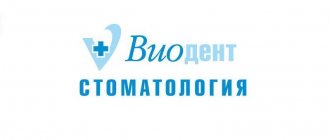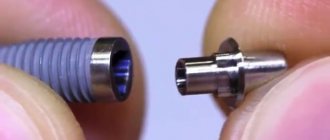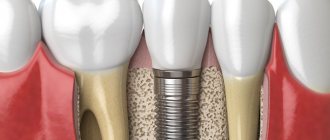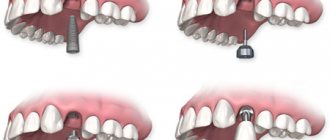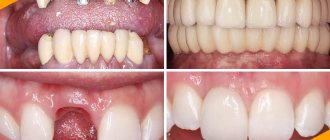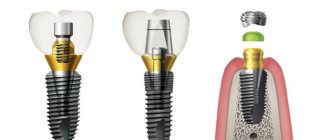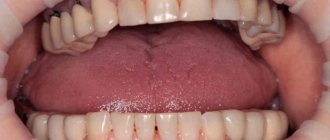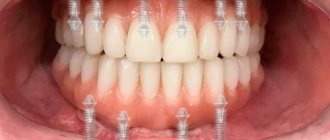Is a compulsory medical insurance policy sufficient to obtain a quota?
The quota in orthopedic dentistry is the amount of qualified and high-tech medical care that a person can receive if he needs prosthetics. In this case, assistance is financed from the state budget. But not everyone can receive it, but only a person who meets certain criteria. Just having a compulsory medical insurance policy (compulsory health insurance) and a passport of a citizen of the Russian Federation is not enough here. Documents confirming social status, income or special contribution to the welfare of the state are also needed - the full list will be given below.
Compulsory health insurance program for citizens in Russia
Compulsory medical insurance guarantees free care in public clinics and hospitals. Medical insurance comes with territorial and basic programs. Basic policies apply to the entire territory of the Russian Federation. Territorial - only for the territory of a specific region. Such an insurance document determines the procedure for receiving free assistance to insured persons in a certain region of Russia.
Each region, region of the country has its own territorial compulsory insurance program. It is approved at a meeting of self-government bodies. The program is formed taking into account all the requirements recommended by the Ministry of Health. Provision of free services is possible only at the place of registration.
Dental services are also included in the compulsory medical insurance policy. Therefore, free dental care is available to every citizen. To get help, you need to go to a dental clinic or hospital. Have your insurance policy and identification document with you. At the reception, the patient fills out an application for choosing a medical organization and creates a medical record, which will contain all the information about the treatment. Afterwards, the patient is referred to a specialist for examination and further treatment.
Treatment covered by insurance is provided by some private clinics. To receive free help in a commercial clinic, a referral from a public clinic at your place of residence is required.
Patients are admitted and treated by appointment. It is impossible to get a scheduled appointment right away; you will have to wait about a week.
Without registration, appointment, queue and insurance, they accept patients in critical condition, with acute toothache, bleeding, high body temperature.
Who can use the quota
Who is entitled to a quota for dental prosthetics? It can be received by socially vulnerable segments of the population - pensioners, disabled people, disabled children, people with severe pathologies. The list should also be supplemented by pensioners of the Ministry of Internal Affairs and those who retired from military service, heroes of the Second World War, home front workers, Heroes and Veterans of Labor, Heroes of the USSR and the Russian Federation, mothers of many children, etc.
You need to know that there are several programs for free dental prosthetics - federal and regional. The federal list includes only those pensioners who retired from government, military service and the Ministry of Internal Affairs. Regions or subjects of the Russian Federation supplement this list with other categories of citizens. You can use the quota for free prosthetics once every 5 years.
Who has the right to extraordinary preferential prosthetics?
A disabled person can exercise the right to install or repair prostheses free of charge only once every five years. In this case, after submitting all documents and receiving permission, you must wait in line. It is formed depending on the date of application, disability group, state of the dental system and general health. When the turn comes, the applicant is given a coupon and informed of the name of the dental clinic where he will be provided with dental prosthetic services.
Urgently, at the expense of budgetary funds, prostheses are installed in the presence of serious diseases and pathologies. Typically this is:
- previous operations on the gastrointestinal tract;
- accidents and injuries that caused tooth loss;
- the presence of malignant tumors of a certain type;
- oncological diseases of the dental and digestive systems;
- some other cases provided for by law.
To exercise the right to urgent installation of prostheses, a disabled person must obtain a certificate from a medical institution indicating the existence of exceptional circumstances and submit it to the social protection authorities.
Composition of the “first” and “second” stages
The first stage includes the following categories of the population:
- Heroes and veterans of the Great Patriotic War,
- participants in military conflicts (servicemen of the army of the USSR or the Russian Federation),
- victims of repression,
- persons with disabilities,
- Heroes and Veterans of Labor.
“Those categories of citizens for whom dentures are vitally necessary can bypass the queue for free prosthetics under the Federal or regional program and get to the beginning. This includes patients with oncological pathologies, serious injuries to the jaw system, as well as those who have undergone surgery on the gastrointestinal tract. You just need to get a certificate from your doctor."
Complex on 4 OSSTEM implants with delayed loading - from RUB 170,000.
Complex implantation Osstem (South Korea) with delayed loading after 4-6 months.
Guarantee for the doctor’s work - unlimited Call now or order a call
Opening hours: 24 hours a day - seven days a week
The second group includes the following groups of citizens:
- non-working pensioners who have no additional income other than a pension,
- persons whose average per capita income is less than half the subsistence level in the region,
- liquidators and disabled people of the Chernobyl accident.
Read more about what kind of prosthetics is suitable for pensioners and how to get it for free.
What dental services are provided free of charge under an insurance policy?
- Consultation and examination by a specialist;
- treatment of caries if tooth decay is less than 50%;
- pulpitis;
- periodontitis;
- removal of tartar (up to six teeth) without the use of equipment at once;
- treatment of gingivitis, periodontitis, stomatitis with medications;
- splinting teeth during periodontal treatment;
- anesthesia;
- treatment of hypersensitivity of teeth.
All drugs, tools, and materials used are domestically produced.
Surgical dentistry under the compulsory medical insurance policy includes:
- specialist appointment;
- simple and complex removal of teeth (impacted, dystopic);
- anesthesia;
- excision of the hood due to difficult eruption;
- treatment of alveolitis with socket curettage;
- splinting of teeth in case of jaw fracture;
- opening of an abscess;
- removal of bony protrusions;
- removal of benign tumors.
of diagnostics are available under the policy :
- radiography and radiovisiography on film and paper;
- orthopantomography - for children and the privileged category of the population for prosthetics.
Physiotherapeutic treatments are also provided :
- phonophoresis;
- darsonvalization;
- galvanization;
- laser and magnetic therapy;
- inductometry.
Opinion of a dental surgeon : “The list of free services under the compulsory medical insurance policy in individual regions is different. In prosperous areas it is represented by two hundred items. In financially disadvantaged areas, dental services may account for 20-30 positions. Registers of medical services in different territories do not coincide and do not meet the requirements approved by the Ministry of Health of the Russian Federation. Veterans and disabled people cannot obtain preferential prosthetics. What can we say about pensioners? Due to the reduction of dental departments, it is very difficult to get care in some regions.”
What is included in the package of necessary documents
The list of documents that will be required to obtain a quota includes the following:
- ID card (passport of a citizen of the Russian Federation),
- SNILS,
- compulsory medical insurance policy (if you have a voluntary medical insurance policy, then take that too),
- pensioner's ID,
- certificate of Hero, Veteran,
- military ID,
- certificate of illness, injury,
- employment history,
- certificate of family composition.
It is better to have with you not only the originals of all documents, but also their copies. In some cases, you will need to provide a certificate of income - both from the applicant himself and from his relatives (spouse, mother / father).
Promotions and discounts - when you can implant a tooth much cheaper
Implantation is not a cheap procedure. However, installing implants makes it possible to solve many problems within a short period of time. A full healthy life is impossible without teeth.
Many clinics work with budget systems, which makes the procedure more accessible . To attract patients, systems of discounts and special offers . Many private dental institutions are ready to offer promotions on implantable structures and their installation.
Prices for implantation during the promotional period can be reduced by up to 50%.
Where to go and how long to wait for your turn
How to get a quota for dental prosthetics? You should first contact your local Social Security Administration office or Department of Health. In small settlements - to the village administration. If a pensioner worked at an enterprise that had a good voluntary medical insurance program - additional health insurance, then you should contact the personnel department or trade union committee. Take with you your passport and pension certificate, work record book, and a doctor’s note about a previous (current) serious illness. This way it will be clear whether you can count on the quota or not.
Then you definitely need to visit a dentist - specifically in a public clinic, and get a certificate from a doctor that dentures are really necessary. This certificate, along with a package of documents, is submitted to social security, where the application is written. Then, within 10 days, a special commission considers it. Next comes queuing - the average waiting period is 3-6 months, but sometimes people wait 1.5-2 years or more for their turn. When the turn comes, the person is informed about it. You need to come to the social security office again to get a coupon (referral).
Be careful, in different regions the validity period of the referral ranges from 14 days to 3-6 months. And if you take it to the dentist later, it will no longer be valid - you will have to collect documents again and stand in line.
At the clinic, an agreement is concluded with the patient (this is a mandatory stage), which prescribes future treatment, prosthetics, a warranty period (usually 12 months), and the responsibility of the parties. For example, it is possible to repair a prosthesis free of charge under warranty during the first year of operation only if the person handled it with care and did not initiate the breakdown. After official registration, dental prosthetics begins.
How to take advantage of government support
Due to the peculiarities of legislative regulation of this issue, you should contact the social security department directly. The allocation of service coupons is the responsibility of this body.
The sequence of actions is as follows:
- Get a certificate from your doctor about the need for prosthetics.
- Attach photocopies of:
- passports;
- certificates: pension or preferential (if available);
- compulsory health insurance policy (CHI);
- birth certificate (for a child with disabilities);
- You must fill out an application at the social security department. Specialists will suggest its form and also examine the documents.
- If you receive a positive decision, take advantage of preferential preferences.
The list of required documents may vary depending on the region. The preference coupon is valid for a certain period of time and then becomes invalid. Specific deadlines are determined by regional legislation. They range from 2 weeks to six months.
The nuances of the preferential queue
The budget pays only for certain manipulations, namely:
- dentures made from conventional materials;
- their repair.
A person can take advantage of the right to free dental installation (denture repair) once every few years. For example, in Moscow this period is 3 years (in the case of prosthetics made from conventional materials) or 6 years (in the case of using expensive materials) (five years). In St. Petersburg, the service is provided free of charge.
Many regions stipulate that they do not provide the possibility of prosthetics using expensive materials or precious metals.
Restrictions on the use of budget money
Citizens who want to take advantage of government support need to know some of the features of this type of assistance.
Namely:
- Budget services are provided only by state clinics (the address is indicated on the coupon). In another hospital you will have to pay for the services out of your own pocket. That is, the patient has no choice.
- It is prohibited to use ceramics and precious metals in the manufacture of prostheses. Only the cheapest prostheses are installed at government expense.
- In some cases, it is allowed to use expensive materials. But you will have to pay extra for them out of your own pocket.
- The list of free services does not include:
- dental implantation;
- creation of structures used in the treatment of abrasion;
- prevention and treatment of periodontal disease.
In case of allergic intolerance to conventional materials, a more expensive material (porcelain, for example) can be used on the doctor’s recommendation.
What specific treatment and prosthetics can be performed free of charge?
A large number of patients who really need free prosthetics want to take advantage of the right to a quota. And you need to understand that if it were expensive treatment, examination and materials for prostheses, then the help would “reach” a minimum number of people - there is simply not enough government money for everything. Therefore, inexpensive materials for fillings and prostheses are almost always used. So, the list of free services that can be obtained in public dentistry (in a clinic) includes the following:
- examination by a doctor, x-ray examination (regular targeted image or panoramic image of OPTG),
- anesthesia with domestic drugs,
- removing tartar with hand instruments,
- treatment of caries, pulpitis, periodontitis,
- installation of domestic filling compounds,
- tooth extraction, incl. complex,
- simple surgical operations (excision of the gingival hood, fistula on the gum, installation of drainage),
- production and installation of removable dentures in the case of complete or partial absence of teeth: as a rule, these are inexpensive plate models made of acrylic. The prosthesis may include dental crowns made of base metals (nickel alloy, for example) and plastic,
- free repair of prosthetic structure.
Metal-ceramics, ceramics, zirconium dioxide, Acry-Free prostheses, fixed bridges are not made free of charge under compulsory medical insurance. Clasp structures made according to compulsory medical insurance are an exception to the rule rather than a common practice. The patient will need to justify with documents and collect a lot of information that the classic “removal device” will not suit him - and then he will be able to have either a clasp with locks or a nylon1 prosthesis. There is also an option that the patient himself chose a more expensive prosthesis and paid the difference between it and the “free” one.
As for, for example, if the patient is allergic to the material of the prosthesis - metal, acrylic, etc., a more expensive (and less allergenic) design can be made here. However, this requires justification - the conclusion of a medical commission. You should also know that dental implantation is not carried out under compulsory medical insurance.
REPROSTHETICS WITH ACRYLIC PROSTHETICS - RUB 150,000. instead of 180,000 rub. until January 15, 2022!
Re-prosthetics with an acrylic bridge on a metal frame (all included) up to 12 units.
Call now or request a call
Is it possible to insert dental implants under the compulsory medical insurance policy?
The program was designed to facilitate the provision of free assistance. However, the dental services available through it are limited. The drugs covered by insurance are inferior to imported analogues. Patients are greeted by unfriendly doctors who remain in the public sector for a number of reasons. Highly qualified specialists usually work in private clinics.
Dental implantation is not included in the list of services that are provided on preferential terms - implants cannot be inserted under the compulsory medical insurance system. This is a costly service for the state.
Patients who need to install an artificial root can only rely on their own strength.
Alternative options for free or low-cost prosthetics
Of course, the state quota for dentures is sometimes the only chance for a person to get a denture. But many people are not satisfied with going through authorities and waiting for their turn for a long time - after all, they want to quickly get normal teeth so they can chew food and smile. What can you do here? You should look for information and study the proposals of scientific and medical organizations, private dentistry, which conduct research on new types of prosthetics and organize social events. In this case, it is possible to get a good prosthesis, and sometimes even dental implants for free.
“In our region we have a generally incomprehensible situation with free prosthetics. Some are given them (I mean pensioners), but others are not. Here are my parents, for example. Mom receives a small pension of 10 thousand, dad works as a security guard for 25 thousand. And they asked my mother for my father’s salary certificate and said that she was not entitled to a prosthesis. That the average income per person is higher than the minimum wage. Like this. And for my aunt in Moscow, they did everything for free without any problems, they didn’t look at my husband’s income.”
Olga T., review from otzovik.com
Some private centers offer discounts to pensioners, or organize seasonal promotions for all patients. Another option is to get paid prosthetics, and then return 13% of the total amount of dental restoration from taxes paid. But this method is only suitable for officially employed patients or those pensioners whose contract with the clinic is concluded with one of their close relatives. That is, a pensioner underwent prosthetics, and the contract was drawn up for his working spouse or child.
1Naumov S.G. Modern materials for removable orthopedic structures, 2011.
Your questions and answers
QUESTION Please tell me what documents need to be collected for a quota for a denture? Viktor Nikolaevich
ANSWER Hello, Viktor Nikolaevich. First, you need to go to a dentist in a public clinic, undergo an examination and get a certificate from the doctor that you need a removable denture. Then you need to take this certificate to the local department of social protection of the population (USZN), write an application and stand in line. Take a certificate of family composition in advance; you will also need to take your passport, compulsory medical insurance policy, SNILS, work book, and pension certificate with you. It is better to check with a social worker at the Social Insurance Fund for a complete list of required documents.
Dental services and consumables that are not paid for by the state
During treatment, the doctor may offer services and materials for which you will have to pay. After all, some treatment methods and drugs used under the policy are frankly outdated. High-quality foreign analogs have a minimum of side effects and contraindications compared to domestic drugs. The list of paid services should also be freely available.
Paid services:
- use of foreign-made filling materials;
- restoration of teeth using light-curing materials;
- orthodontic treatment;
- restoration of teeth with intracanal pins;
- installation of implants;
- prosthetics on implants;
- anesthesia with carpule anesthetics;
- surgical treatment of periodontal diseases;
- bone tissue augmentation operations;
- preventive teeth cleaning, stone removal;
- teeth whitening, fluoridation;
- extraction for orthodontic indications (after 18 years);
- surgical treatment of jaw cysts;
- plastic surgery of the frenulum of the lips and tongue (for patients over 18 years of age);
- vestibuloplasty;
- installation of bracket systems.
- Complete restoration of the dentition in just 4 days!
more detailsRoott Pterygoid Implants Sinus lift is no longer needed!
more details
Once and for life! Express implantation in 4 days with a permanent ReSmile prosthesis
more details
All-on-4, All-on-6, ReSmile, Zygomatic implantation We use all modern methods of dentition restoration
more details
